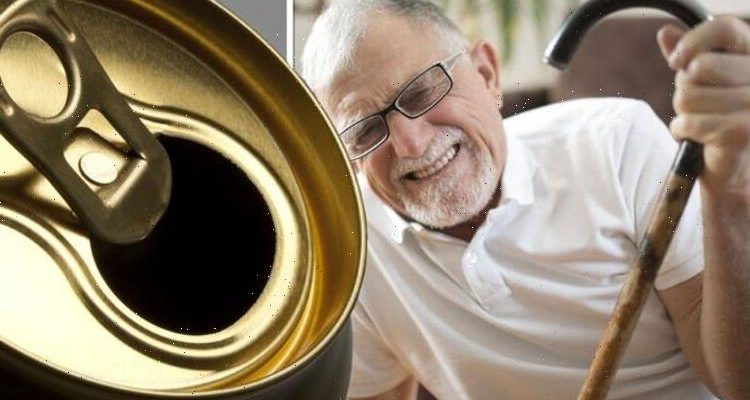Statins: How the drug prevents heart attacks and strokes
We use your sign-up to provide content in ways you’ve consented to and to improve our understanding of you. This may include adverts from us and 3rd parties based on our understanding. You can unsubscribe at any time. More info
A stroke, which claims approximately 32,000 lives in the UK each year, can be caused by a blood clot or haemorrhage in the brain. Unfortunately, many of those who don’t succumb to the condition are left permanently disabled. Receiving treatment swiftly after symptoms appear significantly increases the odds of recovery. One drink could trigger an event, by increasing the risk of atrial fibrillation.
Energy drinks contain masked caffeine, in the form of agents like guarana, which has twice the amount of caffeine found in coffee beans.
Although caffeine consumption is generally considered safe, adverse events could occur after consuming high doses of the stimulant.
Rheumatologist Rula Hajj-Ali, MD, told Cleveland Clinic: “Energy drinks have megadoses of caffeine and sometimes other stimulants.
“We find that some people who use them come into the hospital with stroke or severe brain haemorrhages.
READ MORE: Stroke: People with a common disorder could be ‘three times’ more likely to have a stroke

“These are typically young, otherwise healthy people in their 30s and 40s.”
The Cleveland Clinic explains that when a stroke occurs after energy drink intake, it’s the result of reversal cerebral vasoconstriction syndrome (RCVS).
This causes a sudden spasm in the brain’s blood vessels, which can either restrict blood supply to the organ or cause a haemorrhage.
The most important symptom of RCVS to spot is a severe thunderclap headache, which intensifies quickly within the space of a few minutes.
The reason why energy drinks trigger RCVS remains unclear, but it’s believed excess caffeine intake could be at the root of the problem.
Excessive caffeine consumption can dramatically increase the amount of calcium released inside the hearts cell.
Caffeine intake also significantly increases the risk of atrial fibrillation or irregular heartbeat.
According to the Journal of Geriatric Cardiology: “Atrial fibrillation is associated with a fivefold risk of ischaemic stroke, stroke recurrence and mortality.

“Anticoagulant therapy may reduce the risk of recurrent stroke by approximately 60 percent and if more efficacious than antiplatelet agents.”
Adverse cardiac events are prevalent after energy drink consumption, with one body of research suggesting overconsumption of energy drinks could trigger cardiac arrests in healthy people.
This was confirmed by authors of a 2017 paper published in the Anatolian Journal of Cardiology, who noted a prevalence of unexplained cardiac arrests after consuming energy drinks.
In fact, reports in HullLive last year detailed the case of a 53-year-old man who experienced a heart attack after drinking 12 cans of energy drinks every day for a year.

Lee Kamen, from Hull, had a heart attack in 2017, at the age of 49.
He told Hill Live: “I was on eight to 12 a day at the time, I was drinking Red Bull and Monster, I used to go to Makro for the pub and would buy cases of 24 cans and just drink them like any other drink.
“I was working a lot and drank them to keep me going. This probably went on for about a year.
“One day I collapsed with a heart attack and had to have a stent fitted, I am now on medication for like due to those dangerous drinks.”
Source: Read Full Article
